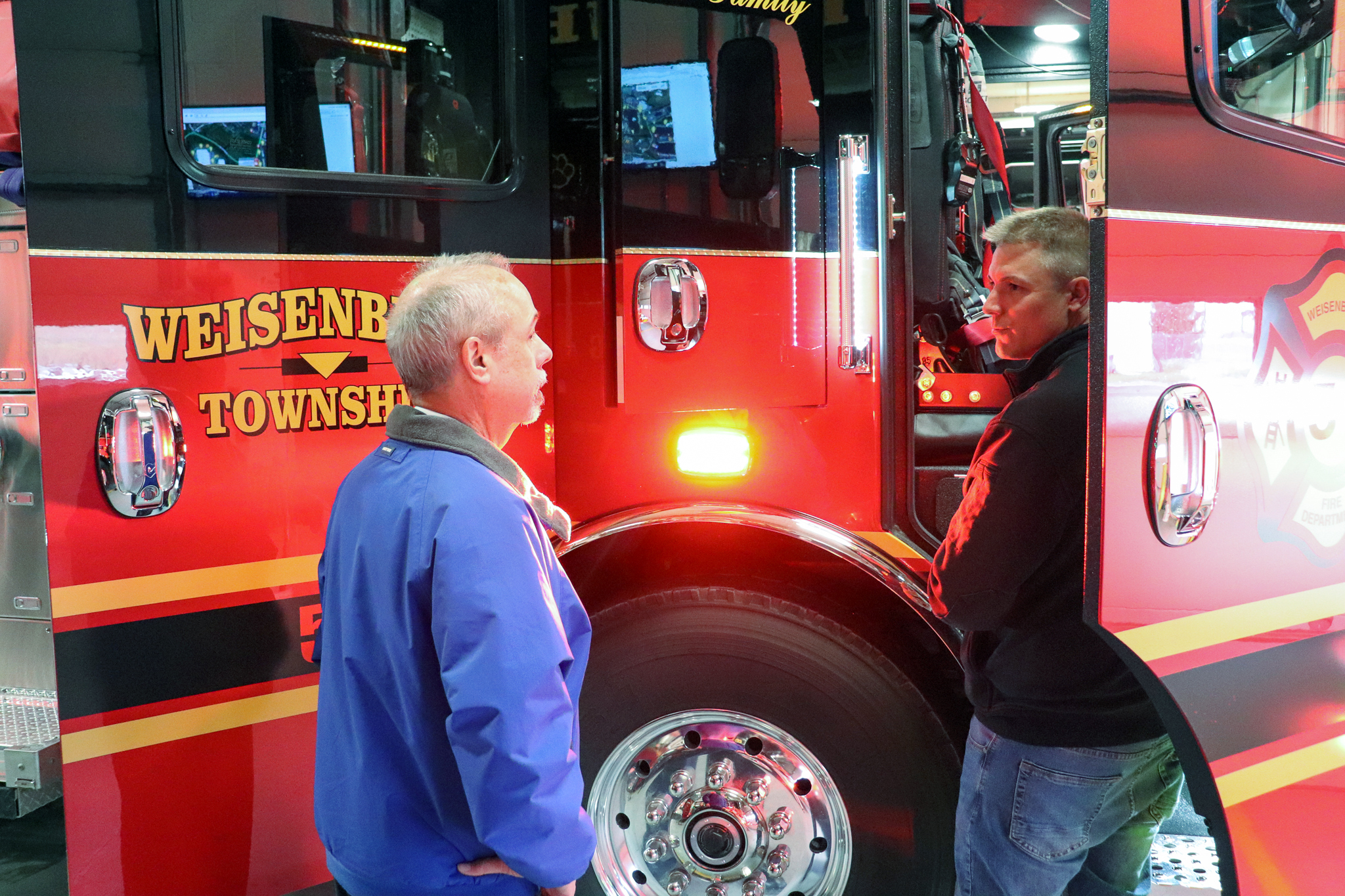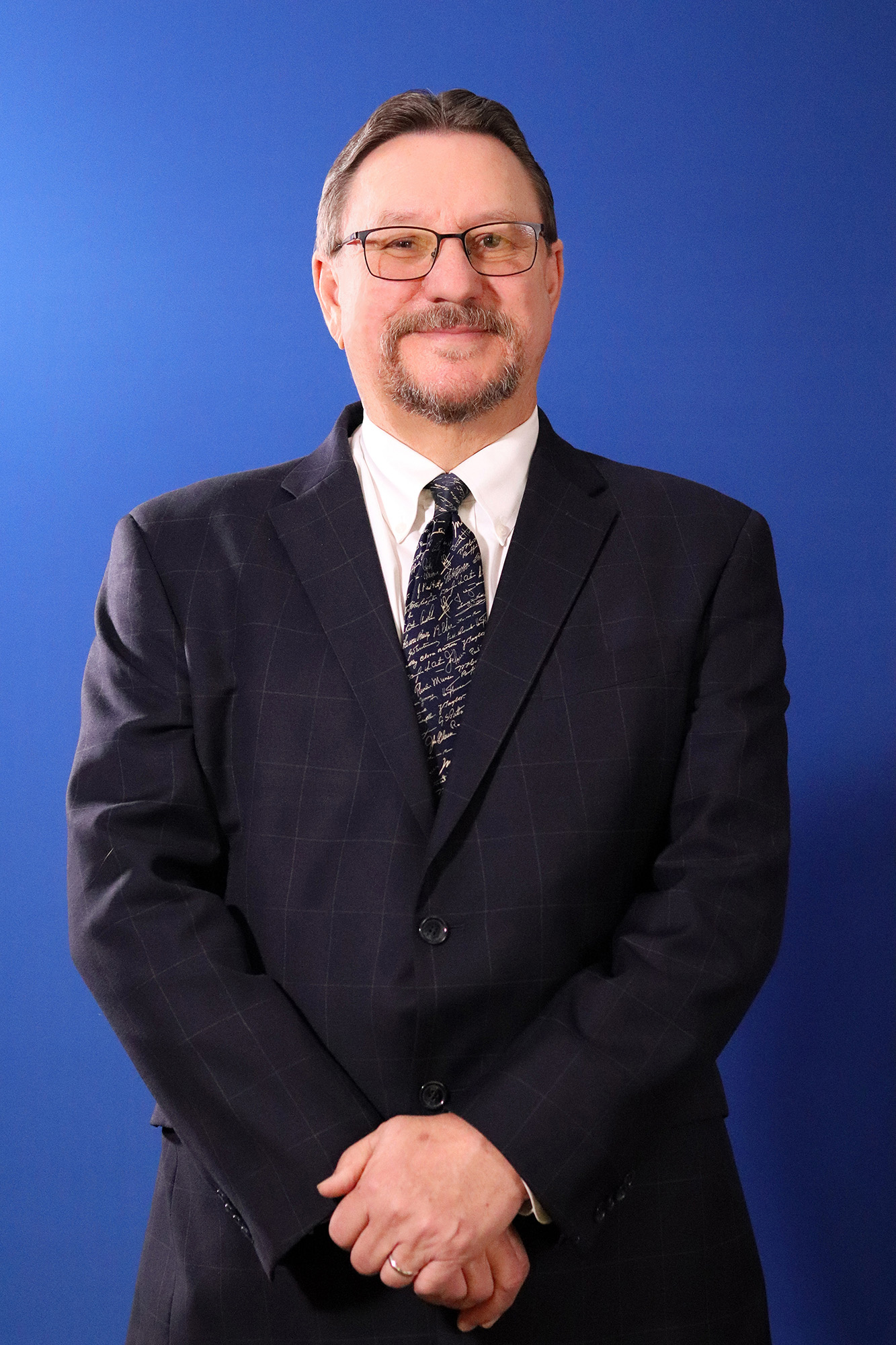We have noticed a trend of increasing incidents of mail check fraud in our area in recent weeks. Mail check fraud occurs when a fraudster steals a check directly from your mailbox or the blue U.S. Post Office boxes and alters the amount on the check and/or the payee information on the check.
New Tripoli Bank recommends our customers take one of the following steps to avoid becoming the victim of mail check fraud:
- Set up online bill pay using our online or mobile banking tools, if you feel comfortable doing so. You can learn more about setting up automated bill pay here.
- If you want to continue mailing checks, we recommend you drop them off at your local Post Office or hand them directly to a USPS employee.
We also advise our customers write their checks out in gel or felt tip pen to help prevent the check from being altered. If you plan to use a blue mailbox to mail checks, try to deposit your checks around the time of the last mail collection of the day so the check does not sit in the mailbox for long.
If you have been a victim of a scam, whether it be check fraud or another scam, please reach out to New Tripoli Bank at 610-298-8811 and we can help you. You can also contact the U.S. Postal Inspection Service at 1-877-876-2455 or visit https://www.uspis.gov/report to file a report.





New Tripoli Bank has donated $50,000 to the Weisenberg Volunteer Fire Department. This donation, combined with strong community fundraising, has allowed the department to purchase a new tanker engine apparatus. On Monday, April 4, 2022, Dave Hunsicker, New Tripoli Bank President, CEO & Chairman, John Hayes, Executive VP & Chief Lending Officer, and Dave Sherwin, Vice President & Commercial Lender, visited the fire station to present the check to Fire Chief Matt Krapf, Assistant Chief Scott Freeman, Deputy Chief Brian Carl, and Fire Department President & Captain Jeff Broadhurst.
This donation helped fund the fire department’s newest truck: a 37-foot long, 34-ton Rosenbauer tanker engine apparatus that can hold up to 3,000 gallons of water. The new vehicle will help the fire department better protect to the safety of the community and comes with quality-of-life improvements that make it easier for the volunteers to fight fires and handle emergency situations. The new tanker replaces the 1977 Kenworth the department had previously used, which they had refurbished in 1999, and has since found a new home with a small-town fire department in another state.
Bank President Dave Hunsicker remarked on the bank’s long history of providing financial support to the Weisenberg Volunteer Fire Department, “I’ve often said there is nothing more important than neighbors helping neighbors in their time of need. This check is recognition and thanks to our local volunteers for their dedicated service to the community.” In the days since the donation, the fire department has already had two opportunities to test their new truck while answering structure fire calls. Fire Chief Matt Krapf said, “for both calls, the apparatus has already proved its value and what a great asset it will be to the Weisenberg Volunteer Fire Department.”

Pictured from left to right: Jeff Broadhurst, President & Captain, Weisenberg Volunteer Fire Department; Brian Carl, Deputy Chief, Weisenberg Volunteer Fire Department; John Hayes, Executive VP & Chief Lending Officer, New Tripoli Bank; Matt Krapf, Fire Chief, Weisenberg Volunteer Fire Department; Dave Sherwin, Vice President & Commercial Lender, New Tripoli Bank; Dave Hunsicker, President, Chair & CEO, New Tripoli Bank; Scott Freeman, Assistant Chief, Weisenberg Volunteer Fire Department
At new Tripoli Bank, we understand the importance of helping our community's youth build a strong financial foundation so that they better understand basic concepts like budgeting, simple interest, and establishing and maintaining good credit. I recently read that currently only 21 states in the U.S. require high school students to take a course in personal finance and found it surprising that such a necessary life skill is not a top priority of our education system.
Financial capability education and financial literacy improves the financial health outlook for our youth, better preparing them to tackle unexpected financial situations or be ready for significant life milestones like paying for college, purchasing a home, opening a business, or building a nest egg.
For Gen Z and their parents looking to shore up money management skills and prepare for life in the real world, I'd like to offer the following tips to start you on your journey to good financial literacy.
Set SMART goals
In this case, SMART stands for Specific, Measurable, Attainable, Realistic, and Trackable goals. Choose selective, realistic priorities—whether it's saving for your first automobile or building an emergency fund—and make sure they are achievable. Create a plan of action and measure your progress over time; being able to visualize your progress can motivate you to continue your saving journey.
Start a Savings Account
Did you know you can now open a savings account at New Tripoli Bank completely online? New Tripoli Bank's online and mobile banking tools offer automated money management services for our customers, so you can set up automatic monthly transfers from your checking account to your savings account. Utilizing automated functionality to handle these transfers makes reaching your savings goal less of a hassle.
Consider Seasonal Employment
If you are a student of working age, you should consider filling your free time between school years with part-time or seasonal employment. A job helps you learn more about personal responsibility and provides an opportunity to manage expenses.
Track Your Spending
Take the time to track your monthly spending, then use that information to create a budget. Make sure to review it periodically and make necessary adjustments. Regularly tracking your spending will help you avoid impulse purchases that act as obstacles on your savings journey. New Tripoli Bank's online banking tool has money management tools that help you set monthly budgets and track your spending compared to your goals, so you can adjust your spending habits effectively.
Understand Risk & Reward
For older students with a comfortable financial situation, consider dipping your toe in the wide world of investment. Knowing how stocks, bonds and mutual funds can affect a portfolio shows you how financial decisions can grow—or shrink—your savings. Some high school classes and financial literacy-based websites provide simulations of how investments work in the real world.
Build Your Credit Score
Your credit score is a representation of your financial past, present, and future. A good credit score makes it easier for you to finance the purchase automobiles or homes, rent an apartment, and get a credit card with a good rate. Parents should consider adding their children to their credit cards to help them build credit while being able to monitor their spending.
Gaining knowledge about how to best manage your money is just the start. When young adults practice proper money management techniques early, they're more inclined to make effective financial decisions throughout life. The sooner your children start to grasp these concepts, the more apt they'll be for a better financial future.

The idea of “sustainability” is linked to a lot of local activities these days—whether it’s reusing or recycling products, sampling culinary delights from a local bakery, or choosing to buy American-made products to support our national economy. There are plenty of reasons why eating, dining, and banking locally makes good economic sense.
If you’ve ever wondered if it matters where you deposit your hard-earned money, let me assure you it does. Not only does banking locally support small businesses (community banks fund more than 60% of small business loans and more than 80% of ag loans), but as locally owned and operated businesses themselves, they are part of the economic engines that create 62 percent of new jobs annually.
Community banks like New Tripoli Bank take in deposits and make loans that keep funds right here in the Lehigh Valley and feed our local economy. It is all part of the strong relationship that community banks have with the communities they serve, and the proceeds from those businesses employ residents, fund municipalities, and continue the cycle of local economic growth.
And if you need more proof, consider the community bank response to the coronavirus pandemic.
- Community banks, as economic first responders, made 60 percent of total Paycheck Protection Program loans to small businesses, including 72 percent of PPP loans to minority business owners.
- Community banks outpace large banks in their average number of banks operating in both rural and urban markets by a 3:1 ratio.
- Community banks are the preferred small business lenders, with an 81 percent net satisfaction score compared to 68 percent for large banks and just 43 percent for online lenders.
- Community banks have consistently demonstrated their safety and soundness with higher capital ratios and better loan quality than larger institutions.
- Community banks operate in areas abandoned by others—serving as the only physical banking presence in nearly one in three counties.
But it is not just about stats. When customers contact New Tripoli Bank, they are greeted by a talented team member who is attuned to their needs and empowered to act on their behalf.
And when our employees log volunteer hours in support of the Lowhill Food Pantry or Miracle League of the Lehigh Valley or when New Tripoli Bank contributes to East Penn Restaurant Week or the Allentown Symphony Orchestra, we are working toward our goal to ensure economic prosperity for the community we call home.
April is Community Banking Month, and I want to thank our customers for putting their trust in us for their banking needs. For our neighbors who may be considering a switch, I implore you to take a closer look at New Tripoli Bank to discover how we can help you realize your financial dreams.
At New Tripoli Bank, we pledge to never lose sight of the all-important relationship and the personalized service our customers expect. After all, at New Tripoli Bank, people are more valuable than money.
Remember, we are all in this together. Community banks like ours are only successful if our customers and communities are, too. That is why community banks and our relationship business model have thrived for more than 110 years. We know what it takes to create successful local economies. Join us in helping to build a more sustainable, vibrant economy here at home!
Did you miss our scam and fraud livestream? Don't worry; the video is now on our Youtube channel for your viewing pleasure! You can also download a PDF of all the slides from the presentation for your own personal use.


New Tripoli Bank announces a leadership transition today that will take effect June 30, 2022.
David R. Hunsicker, current Chairman of the Board, Chief Executive Officer and President of New Tripoli Bank, will be serving in the capacity of Chairman of the Board and President effective June 30, 2022. He has spent 49 years working at New Tripoli Bank. He became Chief Executive Officer and President in December 1996 and Chairman of the Board in January 2011.
During his tenure as CEO, the Bank’s financial performance has been stellar. Assets grew from $109 million to $590 million, and the Bank has been given consistent 5-Star ratings by Bauer Financial. Under his leadership, New Tripoli Bank expanded from its home market in New Tripoli to Claussville in 1999 and Upper Milford in 2019.
During his career, Mr. Hunsicker has been a leader in the industry. He served on the Board of Directors of the Federal Reserve Bank of Philadelphia from 2013 to 2018. He currently sits on the Federal Reserve Bank of Philadelphia’s President Advisory Committee, the Board of Directors of the PA Bankers Association, and the Board of Directors of Atlantic Community Bankers Bank, where he also serves as Audit Committee Chair. He has also served on the Boards of numerous other organizations.
“I have been fortunate to lead an outstanding organization and a great team for many years,” said Mr. Hunsicker. “We are successful because of the dedication of our Board and employees, and the support of our customers and the communities we serve.”

John M. Hayes, Executive Vice President and Chief Lending Officer of New Tripoli Bank, will assume the role of Chief Executive Officer effective June 30, 2022. He will be responsible for all daily operations of the bank.
Mr. Hayes has over thirty-five years of banking and financial services experience. Prior to joining New Tripoli Bank as Chief Lending Officer in 2016, from 2006 to 2016 he was President of AFC First Financial Corporation, a national leader in residential energy efficiency and renewable lending programs. He was also Executive Vice President and Chief Lending Officer of East Penn Bank.
During his career, Mr. Hayes has also been a leader locally and in the industry. He is currently Vice Chair of the Board of Governors of the Lehigh-Northampton Airport Authority, a member of the Board of Directors of Barry Isett & Associates—a multidiscipline engineering and consulting firm—and he chairs the Lending Advisory Committee of the PA Bankers Association. From July 2019 through June of 2021, he served as Chair of the Board of Governors of the Greater Lehigh Valley Chamber of Commerce.
“New Tripoli Bank is a special organization, now 112 years old,” said Mr. Hayes. “I thank the Board of Directors, Dave Hunsicker, and our team for this opportunity and I look forward to working together to ensure our service to our customers and communities for another 112 years – at least.”
“John Hayes has shown he has our core principles at heart, that People are More Valuable Than Money,” said Mr. Hunsicker. “I look forward to the Bank’s continued strong performance and presence under his leadership.”

According to a survey put out by Lending Tree, 56% of Americans donated to charity in 2021. That generosity supports the various organizations putting these donations to work for health care, education, environmental protection, the arts, and numerous other causes.
Unfortunately, it also opens the door for scammers who capitalize on the goodwill of American citizens to line their own greedy pockets.
Every year, we hear about new scams involving faux fundraising for things like veterans, disaster relief, and other charitable causes. Scammers know how a sad story about someone rebuilding after a hurricane or someone coming home after serving our country can turn off the skeptical parts of our brains and get us to open our hearts and wallets to them. Charity scammers are especially active during the holidays since it's the biggest giving season of the year.
Consumers can protect their contributions and prevent becoming a victim by learning how to identify a charity scam.
Red Flags for Charity Scams
- Similar Sounding Name – Scammers will often use names that sound similar to legitimate charities to intentionally create confusion for consumers.
- High Pressure – Fraudsters will try to force a hasty decision by creating an atmosphere of immediacy. They may cold call, identifying you as a previous giver, and ask you for renewed support or to update your credit card information. In these situations, they are attempting to catch you off-guard and extract your financial information.
- 100% Guarantee – Every organization has some level of administrative costs. While most people want to ensure their donations are going toward legitimate program expenses, an organization that promises 100% of your funds are going directly to an individual in need might require additional scrutiny.
- Donation via Wire Transfer or Gift Card – Legitimate charities will not ask you to make payments via money order, wire transfer, or gift cards. If you are asked to pay by these means, hang up immediately. Never provide the information from a gift card over the phone or email; after verifying the legitimacy of the charity, take any gift card donation directly to the location of the charity and request documentation of your contribution.
Here are some tips that can help you avoid falling prey to a charity scam:
- Always research before giving!
- Visit the PA Department of State's online charities database to verify an organization's financial information concerning expenses for program services, fundraising, and management.
- You can check to see if an organization has been subject to corrective action by the Bureau of Corporations and Charitable Organizations by checking its enforcement and disciplinary actions page.
- Check whether an organization is registered with the Internal Revenue Service as a Tax Exempt Organization.
- Groups such as the Better Business Bureau (BBB) Wise Giving Alliance, Charity Navigator, and CharityWatch offer information and ratings about charitable organizations.
- Don't feel pressured to make a donation on the spot. Take time and do your research before sharing personal or financial information or sending money.
- Check websites very closely. Scammers can direct you to fake charity websites where personal and financial information are taken for nefarious purposes.
- Avoid wire transfer, money order, or gift card donations. Any requests for these kinds of payments should send up immediate warning flags.
- Direct your payment to the charity. Never make a check payable to an individual; write the check to a verified organization.
If you think you've been the victim of a charity scam, you should contact the PA Department of State's Division of Charities Investigation Unit/Audits at RA-STBEICIU@pa.gov or use the online complaint form. You should also file a report with the Federal Trade Commission at https://ReportFraud.ftc.gov and contact local law enforcement through non-emergency channels.
Join us on Friday, February 11th from 3:00 – 3:45 for a livestreamed presentation on common scams and frauds our customers report to us every day, how to identify these scams and how to avoid becoming a victim. The presentation will be livestreamed on our Facebook page and is free to attend.
We will also be covering the tools New Tripoli Bank customers can use to help spot possible fraud and protect themselves from scammers stealing their money, including our online banking platform and CardValet app.
The presentation will be followed by a brief question and answer period where the presenters will answer questions posted in the moderated livestream chat.
Come ready to learn and ask questions!
Check in to our Facebook event page so you'll be notified when we go live: https://www.facebook.com/events/957243428553534/
Merry Christmas and Happy New Year! From all of us at New Tripoli Bank to all of you, we hope everyone in our community has a lovely and safe holiday with your friends and families.


High wire artist and daredevil Karl Wallenda was internationally known for his dangerous stunts, often performed without a safety net. For years, he performed daredevil feats to countless audiences of stunned onlookers. Unfortunately, on March 22nd, 1978, Karl’s luck finally ran out, while walking a tight rope over one hundred feet in the air suspended between two towers of a hotel in Puerto Rico. A combination of faulty rigging and strong winds tripped up Wallenda, who fell to his death.
While it can be tempting to follow in the footsteps Karl Wallenda and take risks without a safety net, when it comes to money, it’s extremely important to understand and effectively manage your risks to ensure financial wellness. Here are several tips to keep in mind when handling financial decisions in the new year.
Maintain Adequate Emergency Funds
Before you make any important decisions, you should make sure you can pay for your regular living expenses. At the very least, opening a small savings account of $2,000 or less can help you weather short-term, unexpected hiccups without leaving you stressed about your bills. If you have the option, a long-term savings account with several months of living expenses will keep you solvent in case of larger financial crises such as a job loss or unexpected medical issue.
Find a Second Income Source
Piggybacking on the previous paragraph, another way to protect yourself from the financial stress of job loss is to diversify your sources of income. While not everyone has the time to start a side hustle, even something as small as selling old collectibles online can add some extra money to your emergency fund. If you’re able to put money into investments, you can even earn additional money without having to commit time to a side hustle or second job.
Minimize Your Debts
Debt often carries a higher interest rate than savings or investments and taking on excessive debt is one of the highest barriers to entry for most American families. This is what’s called a debt spiral, where an individual feels a loss of control thanks to chains of ever-increasing debt obligations. By staying away from excessive debt, you can maintain greater control over your finances, which helps to reduce stress.
Maintain Good Health
Speaking of stress: staying physically fit is not only good for your health—it also positively impacts your financial wellness! You’ll find that it costs less money to maintain good health, by taking steps such as regular exercise and healthy eating, than it will when you need expensive medical procedures to fix the physical ailments and diseases that come with poor health. While it is easier said than done, what better time than the New Year to commit to starting that diet or exercise plan?
Life is full of risks, so it’s important you do what you can to protect yourself. The goal of financial wellness is to reduce the overall stress that comes with budgeting and financial planning and putting yourself in a good enough financial situation where you can start thinking about things like investing and wealth generation.
Next Page »« Previous Page
 Log In
Log In

 Log into Online Banking
Log into Online Banking